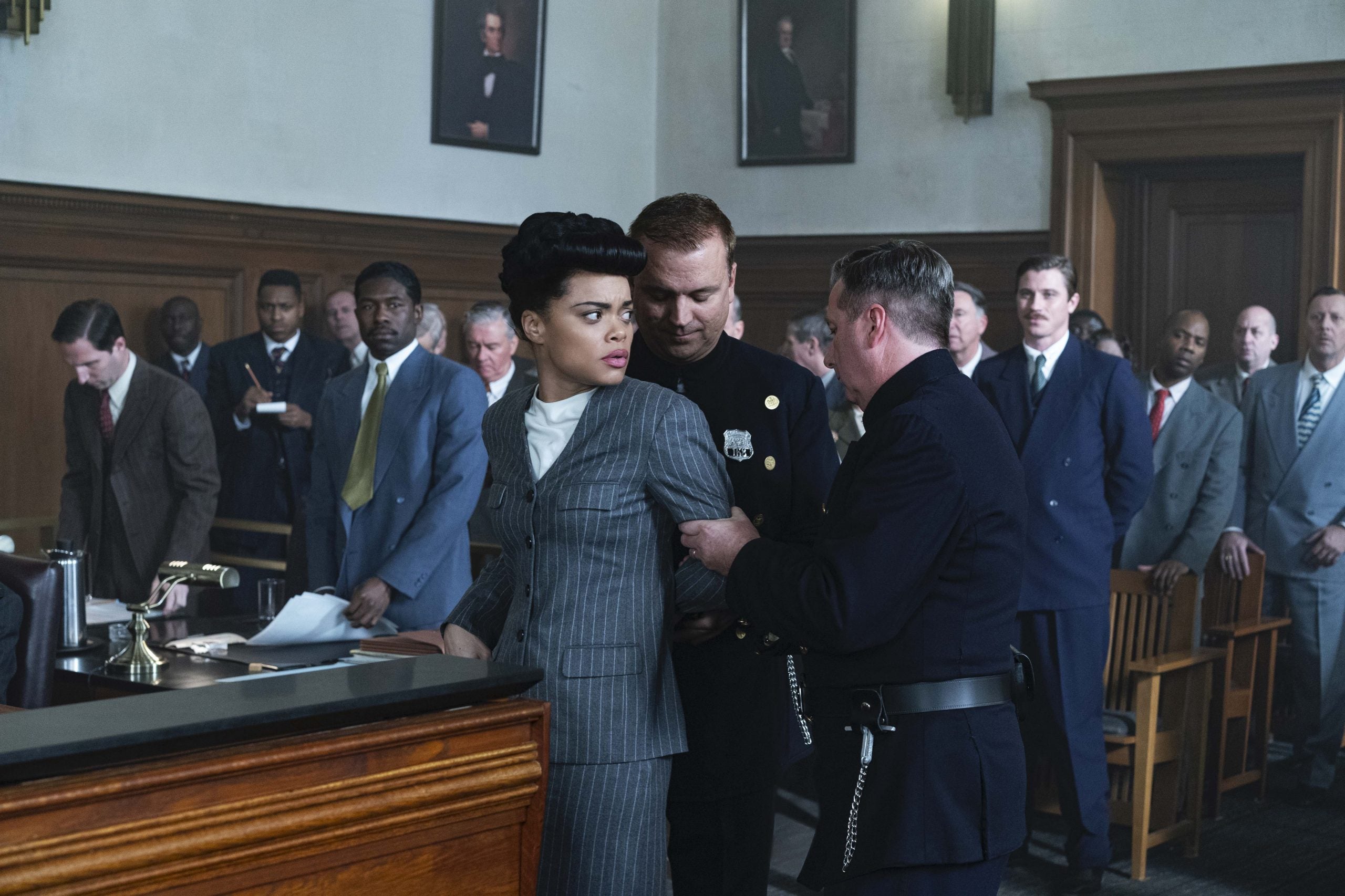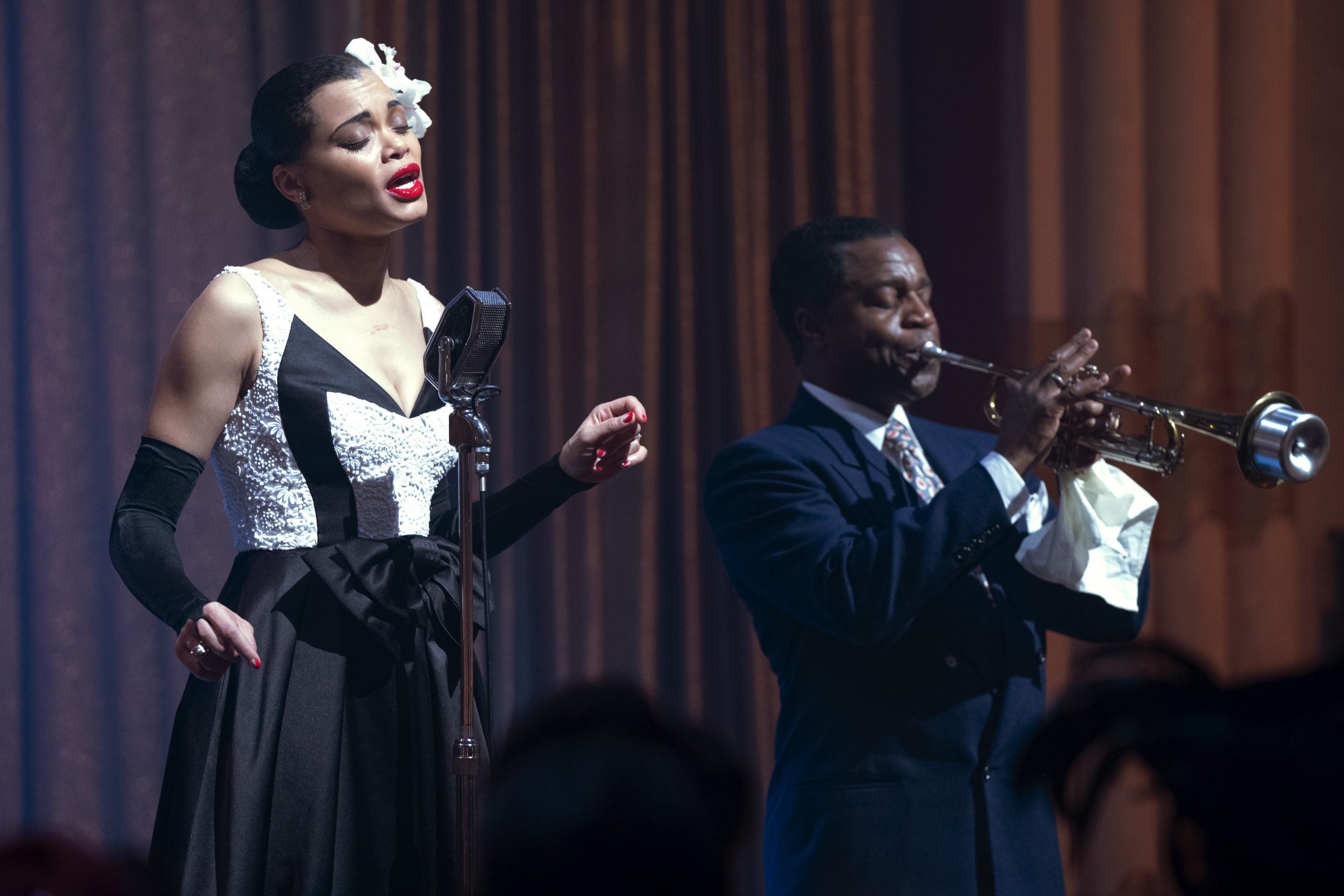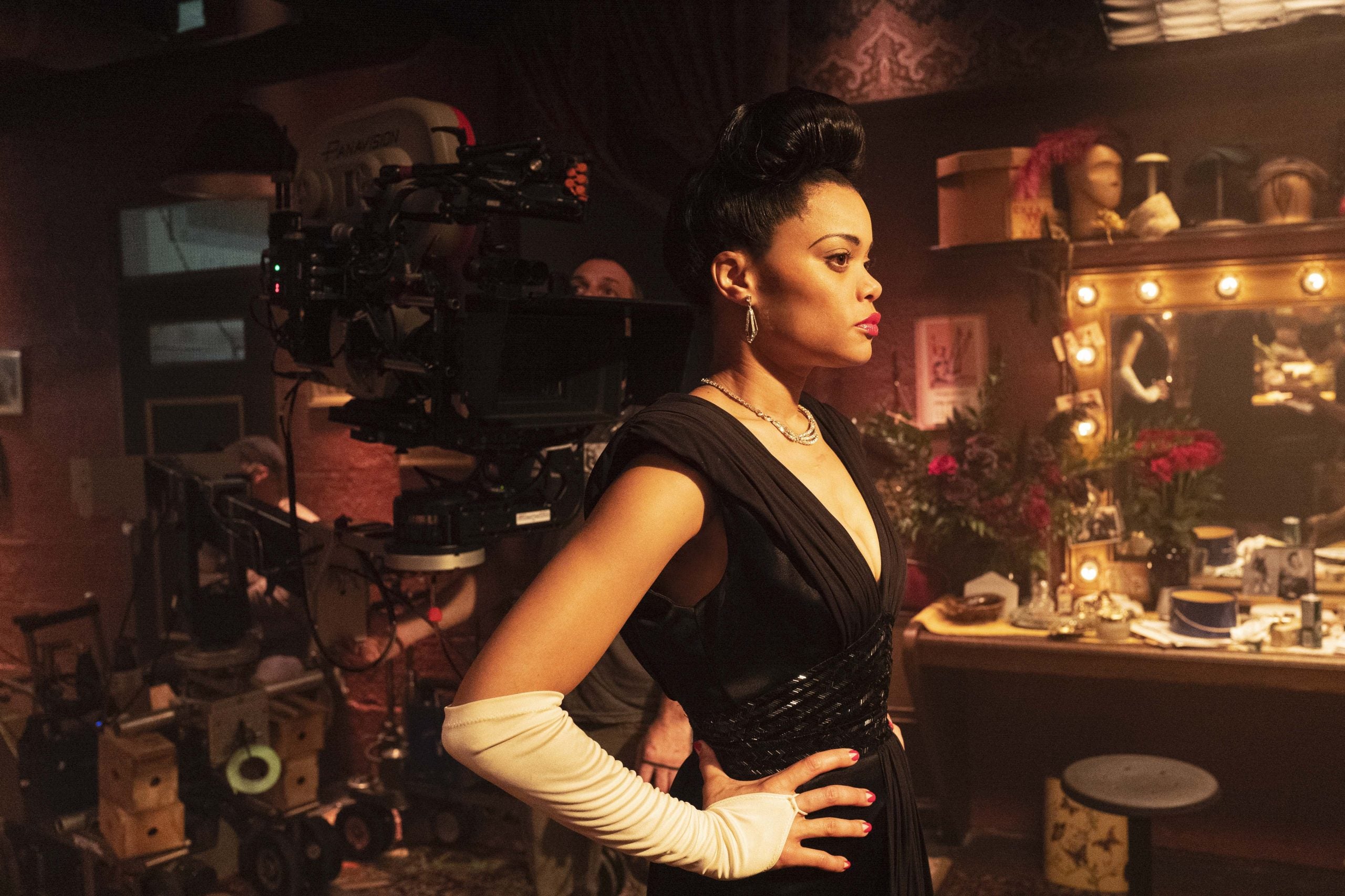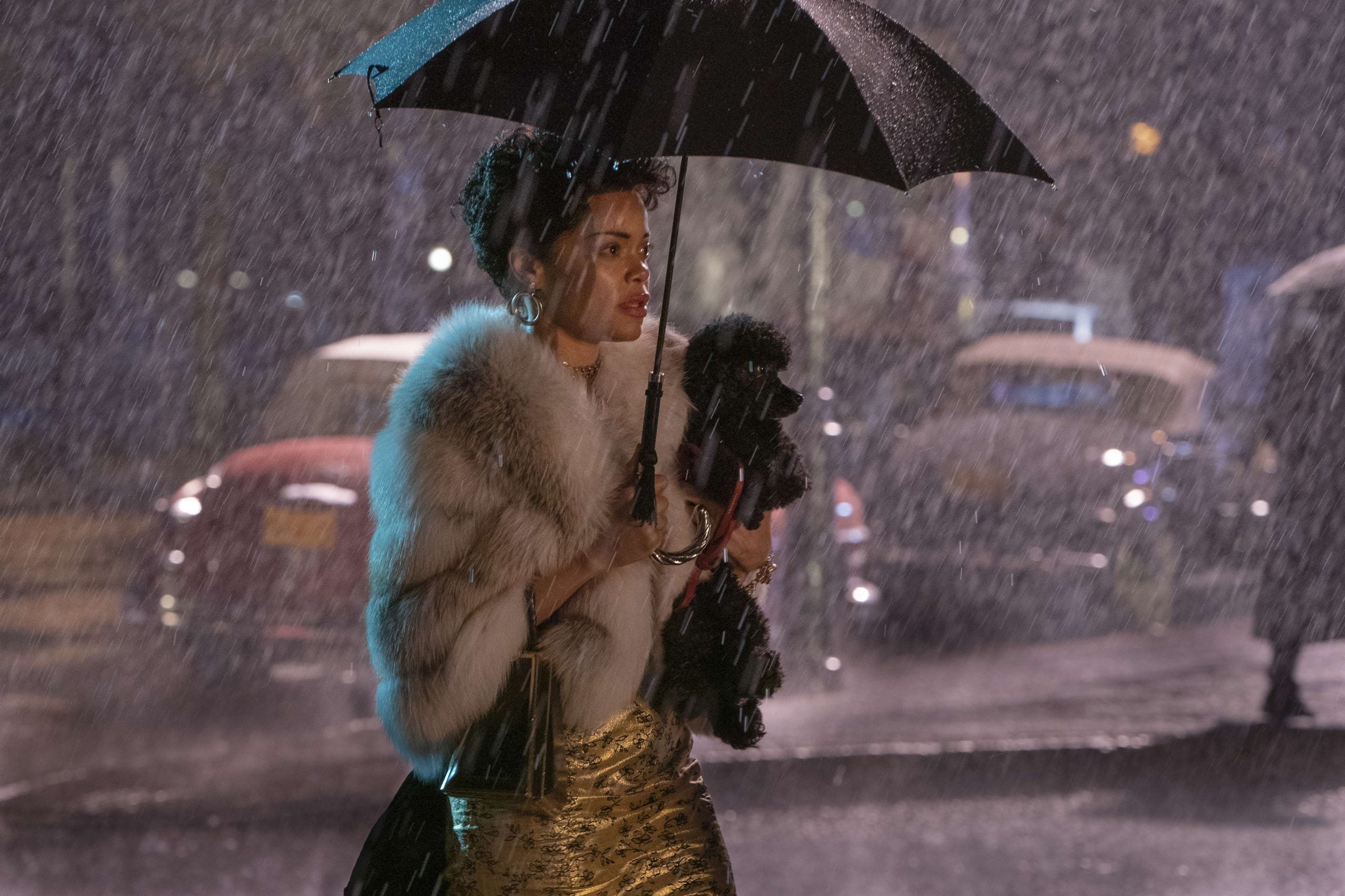The United States Vs. Billie Holiday follows the jazz icon’s persecution by the U.S. government for speaking out against lynchings. The force behind civil rights’ anthem “Strange Fruit,” Holiday chose to sing the jarring song about their brutality despite being warned that doing so would place her career and freedom in jeopardy.
The Blues singer is portrayed in the Lee Daniels’ film by a dazzling Andra Day. The project takes the viewer through a number of Holiday’s traumatic experiences, her body tousled about throughout the two-hour picture. In one scene, she’s being pummeled by a deceitful and financially abusive lover. In another, she’s shivering in a communal prison shower after the criminalization of addiction is weaponized against her. But more than an uncovering of the mental and physical blows Holiday took during her lifetime, the film reminds us of the experiences she never got to have.
Watching Day’s delicate body be seized from the stage for speaking truth to power, I began to imagine who Billie Holiday would be if she didn’t have to constantly fight for her humanity.
What songs would she have sang if she wasn’t scarred by trauma? What music might she have chosen if she had more time to discover what brought her joy? What styles might she have experimented with if she hadn’t been busy looking over her shoulder? What would she have imagined if she wasn’t haunted by images of hate crimes?
The artist chose to endanger herself by fighting for justice, but how much of a choice did she really have? How much agency is afforded to Black women in the first place? With no one coming to save her, Holiday was forced to do what she could to draw the threat into the light where she could keep an eye on it. As one character says when criticizing the choice of a Black federal agent to set up the star, “If she don’t do it. Who will?”
In one scene, an arrogant interviewer asks Holiday, “Wouldn’t your life be easier if you just behaved,” as if smoking a cigarette or sleeping in one’s bed isn’t grounds for the execution of Black women in America. Before Holiday began to warn the world about the evils of white supremacy she was born into a world that required constant focus on survival. Had she opted to turn away from the Black bodies swaying from the deformed limbs of Southern trees, she still would not have been safe.
Black artists do not have the opportunity to be apolitical and Black bodies do not get to decide when they’re in danger.
Holiday would have faced the wrath of systemic racism whether she courted it or not. The singer was just 44 years old when she died and she was forced to spend much of that time defending herself and others from state violence by raising awareness. She was unable to evolve as an artist without carrying the knowledge that others’ hate threatened her existence. We will never get to be inspired or soothed by what Holiday might have created had she not been swathed in constant pain.
Black people have had their prosperity, their sanity, and the very air in their lungs snatched away by systemic racism. The United States Vs. Billie Holiday shows us another tragic loss of state-sanctioned hate is unburdened creativity.
The United States Vs. Billie Holiday is now available on Hulu.
Source: Read Full Article






